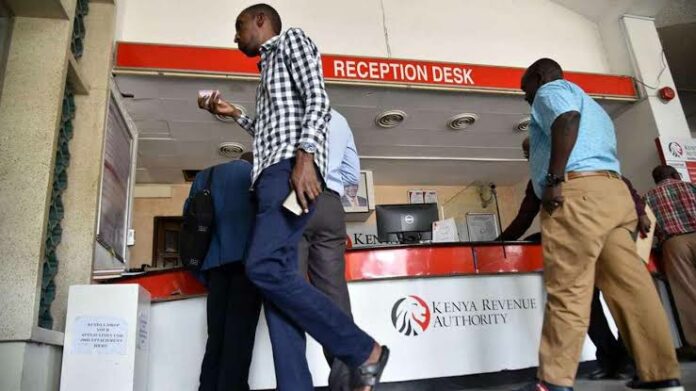Every first six months of the year, Kenyans are mandated to file their tax returns with the Kenya Revenue Authority.
According to the Kenya Revenue Authority, Section 52B of the Income Tax Act (CAP 470) of Kenya’s laws requires that every person or entity submit a return of income to the KRA Commissioner of Domestic Taxes not later than the last day of the sixth month following the end of the year of income.
For instance, if your year of Income ended in December 2022 (like most Kenyans), you are required to file a return by June 30 2023. This is why the KRA asks you to submit your tax returns for the previous year between January 1 and June 30 of the following year.
The June 30th deadline applies to all individual taxpayers and business entities whose accounting period runs from January to December.
When setting out to file your returns, it is important to understand what your tax obligations are. This will help you avoid inconveniences such as fines for non-compliance. You may CLICK HERE to see what your tax obligations are.
If you have a formal job and income, you will require P9 forms that will be issued by your employer to file your tax returns.
If you are a business person, you will need to have your books of accounts and financial statements ready for reference when filing your returns.
Although there is a period within which the law requires you to file your returns, the act of filing returns has evolved to become an act of patriotism that has grown in tandem with the ease of filing tax returns.
“We have continuously been making deliberate efforts to simplify the process of filing tax returns for Kenyans to ensure that filing tax returns is not a labour but an easy and proud gesture of patriotism,” says KRA in a statement to Bizna Kenya.
For instance, KRA has developed short videos with step by step directions on how to file your tax returns to ensure that you can file your returns from the comfort of your home.
For example, this easy and short video shows you how to file your tax returns using the excel form.
At the same time, in order to simplify tax processes, the KRA has a mobile phone service known as M-service which enables taxpayers to access various services offered by the Authority such as taxpayer registration, filing of returns and payment of taxes.
Take NIL Returns for example, KRA PIN holders who did not have any income last year can use the M-service application to submit a nil return.
A nil return is a declaration to the Commissioner that there was no income earned over that period. According to the Kenya Revenue Authority, you should follow these steps to file a Nil Return:
- Log onto itax.kra.go.ke using your PIN and password
- Select Returns on the drop down menu, click File Nil Return
- Under tax obligation, select your income tax status and click next
- Enter Return period from and Return period to if not populated.
- Click on submit and wait to receive and acknowledgement receipt from KRA in your email.
A spot check on the M-Service App by Bizna Kenya reveals that some of the services you can access include:
- Register for a PIN
- Apply for a Tax Compliance Certificate (TCC)
- File and Pay your taxes (Monthly rental income and Turnover Tax)
- File NIL returns
- Verify Payment Registration details
- Verify TCC details
- Verify KRA Staff details
- Verify PIN details
- Confirm status of your Customs declaration
In the same vein, tax returns filing for persons with employment as the only source of income has now been simplified into a few steps.
This category of taxpayers can now file their tax returns using the auto-populated function on iTax where essential details required are pension contribution, mortgage interest,insurance relief and where applicable, Exemption certificate for persons living with disability(PWD), and personal relief.
This process takes an average of less than five minutes. Taxpayers with other supplementary sources of income including but not limited to rent and business are however required to file their tax returns on the IT1 excel sheet available on iTax.
If you provide consultancy services or if you have a side hustle contract from which you earn some money such as real estate advisory services, personal finance coaching services, and newspaper freelancing, you will be obligated to pay withholding tax.
“Withholding tax is a tax that is deducted from certain incomes such as management, professional and training fees, consultancy fees, legal fees, audit fees,” says KRA.
According to KRA, the person who requires your services (also hereby known as Withholder) is responsible for deducting tax at source before paying you (the withholdee).
He or she is then required to remit the deducted tax to KRA, after which you will receive a Withholding Certificate through your registered email that is on your PIN certificate.
Once you receive your Withholding Certificate, you will file your Withholding tax when the returns period opens between January and June.
“We have committed ourselves to go out of the way to ensure that all Kenyans have an easy time when filing their returns. We encourage all Kenyans to file their returns in time, and to engage with us on any step through which they might need help. We are here for you,” says KRA.









